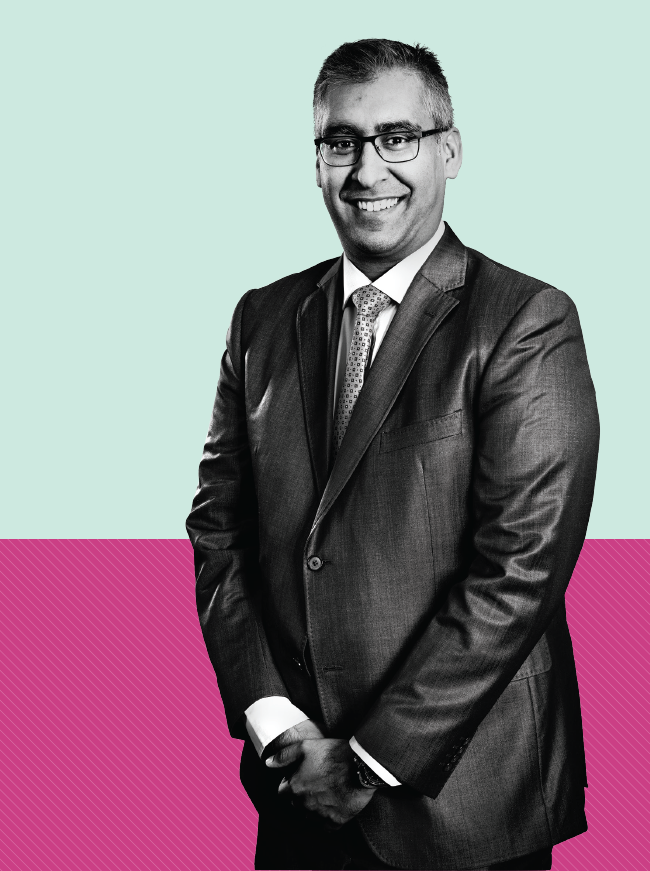The Imperial Group is advancing its strategic positioning as the gateway to Africa, says its CEO, Mohammed Akoojee By the end of 2019, Imperial proved just how resilient it is to persistently tough market conditions, with good results achieved across all three of its divisions – SA, African Regions and International. Mohammed Akoojee, group CEO, says that despite exposure to heightened difficult economic and trading conditions across all markets, with minimal recovery expected in the short term, he is pleased with the growing revenue and operating profit from continuing operations – 1% and 9% respectively – for the first half of its 2020 fiscal year.
‘Our results benefited from new contract gains, circa 80%, and we have an encouraging pipeline of new opportunities. We also continue to record significant strategic progress against our core strategy,’ he says.
The strategy to which Akoojee refers includes growing Imperial’s African business and aligning the international portfolio to what the group calls its ‘Gateway to Africa’ strategic imperative. This medium-term plan sees the group intensifying its client-driven imperative, with a strong focus on service offerings, while positioning its capabilities in five core industry verticals, namely healthcare; consumer; chemical; industrial; and automotive – and less so on regions.
‘It is an incredible business, because it is itself driven by resourceful and resilient people. I’d like to see that continue long into the future’ In Africa, says Akoojee, industries such as healthcare and consumer goods continue to deliver growth, and the group remains positive about rising consumerism and urbanisation, which increases demand for quality delivery across the continent. ‘We are not only well-placed to benefit from our already well-developed market-access services, but we can also tap into the experience and expertise we have acquired in Europe in how we respond to the exacting needs of its industries, such as chemical and automotive. Similarly, we’ll be leveraging our strong competitive advantages and market access, freight management and contract logistics capabilities to better position the group for the future.’
Imperial’s strategy, which is also aligned to the growth aspirations of its clients, unifies the group as uniquely capable of delivering sustainable growth and targeted returns. Strategic clarity and subsequent progress against the business’ strategy has been well-received by the market.
‘Despite challenging trading conditions in most of our markets, we remain relevant and critical to client needs, evidence of which is new business revenue of some R5.8 billion per annum secured at the end of December last year. Our balance-sheet management also remained sound, with significant capacity to achieve our organic and acquisitive growth strategies,’ says Akoojee.
Growth in this sense also means Imperial will be investing deeper into existing geographies and exploring new regions, provided ‘those complement our capabilities, industries and client base’, explains Akoojee. Imperial will also continue to address evolving client engagement by investing in new technology enablement, industry and capability expertise.
‘Innovation and digitalisation remain critical enablers to our strategy,’ he says. ‘In order to position Imperial in the pragmatic application of disruptive innovation and new technologies, we established a $20 million innovation fund in partnership with Newtown Partners. The fund provides a mechanism for effective responses to current and future developments in our industry and invests in high-potential start-ups in relevant supply-chain and logistics technology areas. It also aims to generate attractive financial returns.’
Yet it’s not all about strategy, technology or returns. Imperial also has a special interest in cultivating and enabling a diverse workforce. Over the last six months of 2019, the group invested more than R50 million in training and skills development of its 27 000 employees across 32 countries. ‘We also have robust talent acquisition, talent pipeline and succession practices and regularly introduce initiatives like our very active global and regional women’s forums,’ says Akoojee.
In addition, Imperial supports five very important CSI focus areas – healthcare; education; skills development; road safety; and sports development. The group’s involvement is visible across all regions in which it operates, with each programme designed to have a sustainable future and make a positive impact on communities. Just how positive is revealed in the number of people who have benefited: 72 Unjani Clinics have served more than 1 million patients; the Imperial I-Pledge road-safety campaign, which assists high-school pupils in obtaining their K53 learner’s licence, has received more than 1.5 million pledges; 43 libraries and resource centres have been built through the Imperial and Motus Community Development Trust; a partnership with the Tulsi Chanrai Foundation, a world-class eye hospital in Nigeria, has served some 35 000 patients; the Differently Abled programme bridges the gap between hearing and deaf people; and the Trucking Wellness centres across SA have provided healthcare and treatment to more than 430 000 individuals.
‘Every day Imperial impacts on the lives of millions of people,’ says Akoojee. ‘It is an incredible business, because it is itself driven by resourceful and resilient people. I’d like to see that continue long into the future. I want Imperial to be a place where people of all ages and job types aspire to work.’









